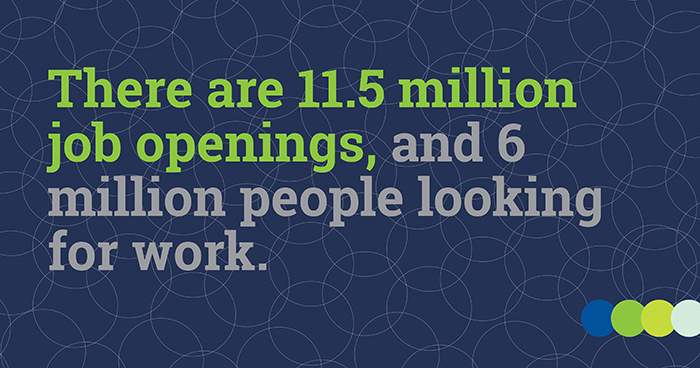Economic Expert Offers Insight into Global Economy
Posted on Wednesday, May 4th, 2022 by Affinis CorpIn Firm News, tagged in

Last week, economic expert and owner of Armada Corporate Intelligence, Dr. Chris Kuehl, shared his insights on the current global economy. In his presentation, he discussed shortages, growth, and the impacts of Russian’s invasion of Ukraine. Here, you’ll find our greatest takeaways from his presentation.
Economic Growth
In 2020, the U.S. Government offered stimulus payments to spur spending, but with many places shut down, citizens chose to save the money instead. A typical savings rate is 6-7 percent, but in the second quarter of 2020 it was 38 percent. In 2021, we started to see people spending that money, which resulted in a 9.6 percent growth in the second quarter. Now, we’re getting back to a more typical annual growth rate (2.5 to 3 percent). Economists predict reasonable growth will continue in 2023 and 2024. Dr. Kuehl said, “We are headed for a slowdown, but not a recession.”
Inflation and Interest Rates
Dr. Kuehl reported that 70 percent of inflation is energy related. Increased wages are another source. However, the Fed can’t control commodities or wages. While many speculate about a large increase in interest rates, this is unlikely, as the Fed doesn’t want to push the economy back into a recession. Some industries, like airlines and hospitality, are just beginning to recover from losses in 2020. The Fed is saying they plan to raise interest rates a little.
Russia/Ukraine Impacts
Dr. Kuehl said the length of the conflict between Russia and Ukraine will determine the degree of its global impact. If it is resolved by the end of the year, then he anticipates global growth will continue. In terms of commodities, Russia has primarily exported gas, oil, and food, 25 percent of which is wheat. As a result, U.S. wheat farmers are seeing an uptick in the price of wheat.
Supply Chain Changes
Supply chain issues have been a challenge for several years, but Dr. Kuehl said that companies are compounding existing issues. Customers are purchasing 20 to 30 percent more inventory than they had in the past. This makes it more difficult for manufacturers to predict orders and manage production.
Workforce Shortages
There are 11.5 million job openings, and 6 million people looking for work. Labor shortages are caused by a number of factors. First, Boomers are retiring in large numbers as predicted. Secondly, we are now living in a gig economy, which has opened the door for less traditional employment opportunities, like Uber and Door Dash. Lastly, unskilled labor positions are no longer readily available. Manufacturers are looking for workers who have advanced training and education.
Increased Turnover
The way Gen Z views employment is very different than how Baby Boomers did. Over the course of their careers, Boomers typically made five significant changes. In contrast, Gen Z will make 20, switching jobs every two years or so on average.
Reshoring
Dr. Kuehl reported that 60 percent of those doing business in China will re-shore (Reshoring involves the return of the production and manufacturing of goods to the company’s original country). After facing numerous issues, they want to have a supply chain in the United States as well. However, they will not be moving away from current offshore locations.
Railroad Changes
Canadian Pacific recently purchased Kansas City Southern railroad. Their lines don’t overlap, but they do meet up, which will simplify merging their resources. It’s expected they will divert 40 percent of their freight from the West Coast to the middle of the United States. This will translate to 800,000 to 1.5 million containers a week. Kansas City and Chicago have the biggest railyards in the Midwest and will be impacted by this change.